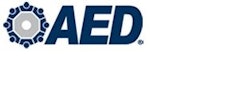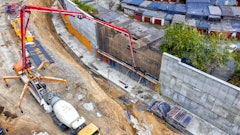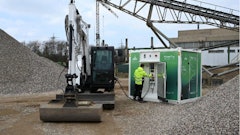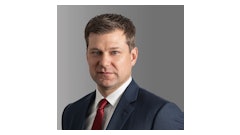
If you doubted warnings that everything is on the table in the current tax reform debate, doubt no more.
Last week, the Senate Finance Committee unveiled a sweeping proposal to change capital expenditure and accounting rules in an effort to both simplify the tax code and pick up revenue to finance a corporate tax rate cut. Top targets are like-kind exchange (LKE), last-in, first-out (LIFO) accounting, and a number of current tax code provisions important to AED members and our customer industries.
The bottom line: there’s a lot for equipment distributors to be concerned about and not much to like in the Finance Committee’s discussion draft.
Among other things, the committee is proposing to:
- Increase Sec. 179 expensing and phase-out levels to $1 million and $2 million, respectively, and index those amounts for inflation. This may be the only bright spot in the committee’s proposal. Increasing and stabilizing Sec. 179, which helps smaller companies buy equipment, is a top AED tax reform priority.
- Replace current cost recovery rules with a new depreciation system for tangible personal property comprised of four pools, with three designated for short to mid-term property, and one designated for mixed-use structures and other longer-term personal property. Pooled assets would be depreciated at rates of 38, 18, 12 or 5 percent using a 100 percent declining balance method, meaning that each year a business could deduct an amount equal to the pool balance multiplied by the depreciable percentage for that pool. Construction and agricultural equipment would be included in Pool 2 and depreciated at the 18 percent rate.
- Require real property to be depreciated on a straight-line basis over 43 years.
- Eliminate expensing for intangible drilling costs (equipment rental and other costs associated with oil and natural gas drill site preparation) and require that these costs be amortized over five years.
- Eliminate percentage depletion, a form of capital cost recovery used by energy, aggregates, and mineral producers.
- Require research and develop costs to be amortized over five years.
- Change tax treatment of advertising costs, which are currently eligible for expensing in the year in which they are incurred. Henceforth, 50 percent of advertising costs could be expensed in the first year, with the remaining 50 percent depreciated over five years.
- Require accrual accounting for all businesses with average annual gross receipts over $10 million (businesses below that threshold could elect cash or accrual).
- Repeal LIFO and require payment of taxes on LIFO reserves over an eight-year period.
- Repeal like-kind exchange for exchanges taking place after 2014.
The Joint Committee on Taxation’s explanation of the Baucus proposal is available here. The Finance Committee’s briefing document on cost recovery reform proposal is available here. A one-pager on the proposal is here. The proposed legislative language is available here.
AED voices concerns
While AED is actively supporting efforts to simplify and restore certainty to the federal tax code, we see a number of problems in the Finance Committee’s proposal.
First, as a general proposition, AED is concerned with the committee’s focus on reducing only the corporate tax rate. The document released by the Finance Committee last week says that the “package of reforms in this staff discussion draft is intended to be coupled with a significant reduction in the corporate tax rate that, on net, is revenue-neutral in the long term" (i.e., in a steady state). The chairman’s staff believes that the revenue raised in the long term from corporations by the proposals in this draft could finance a significant cut to the corporate tax rate” (emphasis added).
A corporate rate reduction would not benefit the two-thirds of AED members that are pass-through entities whose owners pay company taxes at individual rates. Put another way, under the Finance Committee’s plan, many AED members would lose important tax and accounting tools and get nothing in return except a higher tax bill. AED has long maintained that tax reform – simplification and rate reduction – should benefit all companies, regardless of how they are structured.
Anyone who has been following AED’s involvement in the tax reform debate will not be surprised to hear that we object to repealing LIFO, which is used by approximately 40 percent of equipment distributors. AED members have combined LIFO reserves of close to $600 million, meaning that repeal would cost equipment distributors more than $200 million in retroactive tax liability. The committee has provided thin justification for eliminating an accounting method (not a tax preference) that has been legal and acceptable for close to a century, saying only that the discussion draft aims to “[i]mprove tax neutrality by eliminating the use of certain accounting methods that allow taxpayers in some industries to significantly defer or otherwise distort income measurement.” To us, this looks like a bold-faced attempt to squeeze equipment distributors and other inventory intensive industries for tax revenue.
We have similar concerns about repealing LKE. We estimate that approximately one-fifth of AED members use LKE for their rental fleets and that AED members collectively have more than $720 million in combined LKE deferrals. As with LIFO, we question why the committee would repeal a part of the tax code that has demonstrated itself to be an effective incentive for capital investment.
We are also concerned about the myriad proposed changes to tax rules affecting equipment consumers in the mining and energy industries. Eliminating expensing for intangible drilling costs and percentage depletion, for example, threatens to undermine economic activity and discourage investment and risk taking.
Finally, we have serious misgivings about the asset pooling concept. Whereas construction equipment is currently depreciable over five years, henceforth equipment owners would be able to deduct just 18 percent of the tax value of the equipment in the asset pool annually, effectively extending cost-recovery periods and dramatically reducing the amount available each year for depreciation. The Finance Committee may think that pooling equals tax simplification, but to us it just looks like it will be simpler for AED members and their customers to calculate a higher tax bill.
“Equipment dealers are already facing a substantial tax hit in 2014 as a result of bonus depreciation expiring,” said Ron Hodgeman, a tax partner at WTP Advisors who works closely with AED members. “I’m very worried that the proposed pooling cost recovery system will put many dealers over the edge and drown them in taxes.”
Hatch voices disagreement over timing, policy
Response from Sen. Orrin Hatch (R-UT), the Finance Committee’s ranking Republican, was tepid both as to content and timing. Hatch made clear he thought Senate Finance Committee Chairman Max Baucus (R-MT) should have waited to release the tax proposal until after House and Senate negotiators complete their work on a framework for a multiyear budget plan next month.
“Unfortunately, the bipartisan desire to overhaul our tax code has become mired in the partisan desire by some to raise taxes under the guise of so-called tax reform in the budget conference negotiations,” Hatch said. “After discussions with my Republican colleagues on the Finance Committee, I told Chairman Baucus that we would prefer to hold off on releasing any discussion drafts until after the budget conference concludes in order to ensure that tax reform doesn’t become a victim of this partisanship.
“While I disagree with the Chairman’s decision today to release these drafts on his own, it is his decision as chairman to make and one that I respect. My staff worked alongside the chairman’s for months, but the fact is that significant policy differences remain between both sides and a final agreement was never reached.”
Hatch’s comments make it clear that there is still considerable distance between democrats and republicans in the Senate about a tax reform bill.
Long road ahead for tax reform
“The Finance Committee’s discussion draft is a reminder about what is at stake in tax reform and should serve as a wake-up call for those who have been sitting on the sidelines,” said AED Vice President of Government Affairs Christian Klein.
AED expects House Ways & Means Committee Chairman Dave Camp (R-MI) to release his comprehensive tax reform proposal sometime in December or January, at which point the debate will begin in earnest. We are concerned that the Senate Finance Committee draft is a harbinger of things to come from the House. We know, for example, that House and Senate tax writers have been working closely together on the parameters of a reform plan and that the Obama administration has also been participating in those discussions. It is not outside the realm of possibility that the Senate proposal is a trial balloon to gauge political reaction to the sweeping policy changes.
While the Finance Committee’s proposal is cause for alarm, dealers should not panic just yet. The legislation is still only in draft form. There is broad disagreement over what tax reform should look like. And there are no guarantees (in fact most think it is unlikely) that tax reform will move anywhere in an election year.
With all that in mind, beyond our normal ongoing lobbying activities, here is how AED is responding:
- First, we will be working over the next several weeks to prepare comments on the Finance Committee draft (due Jan. 17). Please help us by sharing your thoughts about what the Committee’s proposal would mean for your company and customers. Send comments to [email protected].
- Second, we are planning to hold a meeting of our informal AED tax reform advisory committee during the AED Summit in Houston in January. If you would like to participate in the meeting and be included on our tax e-mail list, send an e-mail with your name, title, and company to [email protected] with the words “AED tax committee” in the subject line.
- Third, tax reform will be in the spotlight during our AED Washington Fly-In on April 2-3. Mark your calendar now and plan to join us as AED members take to Capitol Hill and engage personally in the tax reform debate.
Stay tuned to AEDNews for regular updates as the tax debate continues.



























